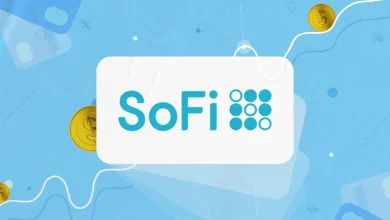Transferring Student Loans: Can You Give Your Loans Away?

You are almost certain to be paying student loans. You might wonder if transferring a student loan to another person might be a better option.
You can’t give away your student loans. Because you signed the loan agreement, you are responsible for repaying the debt. However, there is a way around it for many: student loan refinancing.
There are many things you need to know about student loan refinance. This guide will help you understand how to transfer student loans. This guide will help you make informed decisions.
Let’s get started.
Transferring student loans: Can you give your student loans to someone else?
Student loans cannot be transferred to another borrower at the moment. Lenders won’t allow you to transfer ownership of your loans. Even if you borrow money for someone else, the only responsibility is yours to repay the loan.
Let’s say that a parent takes out Parent PLUS loans to help pay for their child’s undergraduate education. The debts are not legally enforceable against the child, but the parent owes them.
Refinance your federal or private student loans through a private lender is the only way to transfer them.
Federal Protection and Benefits Can Be Lost
You cannot transfer student loans from the federal system to a private lender if your current loans are with U.S. Education Department. As a result, you will need to convert your federal student loans to private lenders.
This will result in you losing all federal benefits and protections. For example, you won’t be eligible for loan forgiveness programs like Public Service Loan Forgiveness and income-driven repayment plans.
You can save money if you find a private lender that will allow you to transfer your student loans to another person.
Each lender has its eligibility requirements. You or another person may need to cosign the loan if the applicant isn’t eligible.
Transferring student loans: Why you should consider sharing your loan
First, why would someone consider transferring student loan debt? This is a common practice for several reasons. Here are some examples:
A parent may transfer a Parent PLUS loan to a student. This is often done when they are near retirement and feel that their child can support herself after graduation.
One spouse may want to share the student loan repayment burden. It may be a good idea to transfer student loans to the spouse in some cases. A spouse with a better credit score might be eligible for lower interest rates.
Someone wishes to consolidate student loans from a relative and take them up. This could happen if a family member inherits the money. It would be a nice gesture to gift it to the student who has reached a significant milestone such as graduating or marrying.
Instead of signing a check to cover the entire loan amount, the individual should transfer the debts to their name and then pay them off.
This is because the money that someone gives to them, directly or indirectly, could be subject to a gift tax. The annual exclusion amount for gift tax exemption is $15,000 in 2021. Anything beyond that amount may be subject to tax.
Transferring loans to someone else may not be the best decision. You should carefully consider the pros and cons of loan refinance.

The pros and cons of transferring student loans
Pros
You can get lower interest rates.
Refinance loans often have lower interest rates than federal student loans. A spouse with a strong credit history might also be eligible for a lower interest rate by transferring student loans.
Possibility to improve credit.
Regular on-time payments can help you build a credit history. This technique can also help a spouse/child who is improving or repairing their credit.
Ability to delegate legal and financial obligations
You can focus on your financial goals by transferring your loans to another person’s name (e.g., retirement).
Cons
There are strict eligibility restrictions.
Private lenders will often require high credit scores and low-income levels to lend money. This makes it hard for new grads to get approved. In some cases, even if everyone involved wants to transfer, a cosigner might be necessary.
Your federal benefits will be lost.
Refinancing can lead to you losing your federal benefits. It would help if you thought it through before you move forward.
Federal loans offer protections and flexible repayment terms. For example, deferment or forbearance options are available if you have financial difficulties.
Transferring student loans to another person
The person responsible for paying back student loans in the future must apply and be approved by the refinance lender to transfer student loans.
How to Transfer Loans to a Child
If you are one of the 3.66 million parents that took out federal Parent PLUS loans to help pay for college, you will be responsible for the total amount. Your child is not obligated to repay it.
However, Parent PLUS loans can cause significant financial hardship. Your child might be willing to take on the debt in return for some relief.
All lenders do not allow borrowers to transfer loans to someone else’s name. Some lenders restrict the ability of parents to move loans to their children. The child cannot do the same thing for their parents.
There are many drawbacks to refinancing in your child’s name.
Refinance with a private lender would mean that your child would no longer be eligible for a Parent PLUS loan repayment program. The ICR plan will not be available for the refinanced loan. This plan lowers your monthly payments and extends the repayment period.
Refinancing can also eliminate any forgiveness associated with PLUS loans for parents.
HOWEVER, the ICR plan is dependent on the income and debt of the parents, not the child, so they might not be as cost-effective. To be eligible for this program, the parent must also be eligible for PSLF. These options may not be as relevant for children who cannot repay parent PLUS loans.
Transferring Student Loans To Your Spouse
If your spouse has a better credit score than you or makes more money, it may make sense to transfer your loan to them.
If your spouse is considering a student loan refinance for their spouse, their credit rating and salary could make them eligible to receive a lower interest rate than you. This could help you save money for your family.
How to Transfer Loans to a Parent
While some lenders permit children to transfer student loans from their parents to other lenders, others do not. Before you move forward, you should do your research. If your child has difficulty repaying their loans and wants to help them, you can refinance the loan and take over.
You will have to repay the debts. This is impossible with all lenders, so it’s essential to shop around for the best ones.
Transferring student loans to another loan lender
Transferring your student loan to another lender may allow you to get a lower interest rate and a shorter payback period. It is possible to transfer debt from a parent to your child.
These options aren’t for everyone. The best way to approach it is to consider your current situation and what you desire from the lender and new student loan. Please take your time to review the following options:
Consolidation of Student Loans
Although student loan consolidation won’t impact your lender, you have the option to switch student loan servicers. This allows you to consolidate federal loans into one, easier-to-manage loan.
Although it won’t lower the interest rate, you will get a smaller payment if you extend the term. Paying for a longer term will result in higher long-term costs.
Consolidation may be an option if you have any of these conditions.
You don’t like the current servicer or have multiple services and would like to consolidate all your loans.
- You are a recipient of FFELP loans, and you want to be eligible for PSLF.
- You would like to lower the monthly amount you pay.
- You wish to change from a federal loan at a variable interest rate to a loan at fixed rates.
Consolidation is not the right option if any of these apply to you.
- You want first to pay off your student loan as soon as possible.
- You would like to lower your total debt.
- You don’t want your credit to be affected by your payments towards your IDR plan, Public Service Loan Forgiveness, or any other IDR plans.
Refinance student loans
You can refinance your student loans and combine them with federal and private loans.
You can’t choose your servicer using Direct Consolidation. However, student debt refinancing is possible. You can also search for loan lenders and compare their customer service records to find one that offers multiple benefits for borrowers.
Refinance student loans, and you won’t need to deal with any of your loan servicers because the loan lender will repay them.
Lenders will manage all your loans together. This means that you only need to deal with one lender to make payments and receive support if you have any questions.
Private student loan companies offer the lowest rates to students with good credit and financial histories. Even if your loan term is not the lowest, you can still save money.
Refinances can be done multiple times as long you are eligible. So make sure to keep an eye on student loan refinance rates. Refinance lenders will often consider the following:
- A ratio of debt to income less than 50%
- A diploma from an accredited college or university.
- The credit score should not exceed 600.
Transferring student loans to parent PLUS borrowers
Refinancing is an option if you have Parent PLUS loans to transfer to your child.
Look for lenders that accept Parent PLUS loan transfers. To find the best deal, prequalify your child with multiple lenders. If your child meets the lender’s requirements, you can transfer the entire student loan to them.
If they refuse, you can become the cosigner for the student loan refinanced and negotiate with them to fulfill the lender’s cosigner release conditions. Many lenders will release cosigners after a set number of successful payments.
For student loans that are being transferred, you should consider bankruptcy.
You will be held legally responsible for repaying student loans if you transfer them to another person. They may not repay the student loans if their financial situation deteriorates.
Although student loans are more difficult to discharge in bankruptcy than other debts, it is possible. Several court cases have supported the inclusion of student loans in bankruptcy proceedings.
However, refinancing student loans with a private lender would be considered a student loan.
This means that bankruptcy might not be an option for you shortly. Be confident in your future and job security before taking on student debt.
How to Transfer Student Loans
Begin by having a candid and open discussion with the person to whom you want to transfer the funds. Both you and your partner should be aware of the consequences of refinancing a loan into another person’s name.
Open communication can save you time and money while maintaining your relationship. These steps will guide you through the process of transferring student loans.
Keep in mind that every loan lender has a unique application and process
Compare refinancing lenders to find the lowest interest rates. We recommend that you contact at least three lenders. Take into account the customer service record of the lender and any other benefits.
You will need to wait while you submit any supporting documentation. The current holder must continue making payments on the original debts until the lenders decide. The process of refinancing is handled on a lender-by-lender basis. However, you can expect it to take at most a few weeks.
Send an online application. You will be asked for financial and personal information. You might find it easier to apply to a group.
Complete and sign the documents. Next, review the final loan documentation to make the change official.
Help someone transfer your loans to you.
What can you do after the transfer is complete?
Check that you have accurate facts records for your credit agencies and loan lenders. Request a letter from the previous lender confirming that the debt is paid in full. Keep both digital and physical copies.
Take a look at credit reports after that. You should see your old loan accounts on your credit reports. There should be a notice that indicates that the loan was transferred or paid in full. Your credit reports should also show the correct balance for the new loan account.
Last Thoughts
Getting student loans can ease your financial burden for you, your spouse, or your child. It’s not something to be taken lightly. Transferring student loans is not possible. You may refinance your student loans to share the burden with another person or loan lender. This option may be right for you if you feel it is. However, you should ensure that the person you are transferring your debts to is available to accept them and meets the lender’s requirements.
They will need to apply for a loan to cover the total loan amount. Keep making your monthly payments until you get word that your existing loans are paid off. You risk paying hefty late fees and damaging your credit score.







